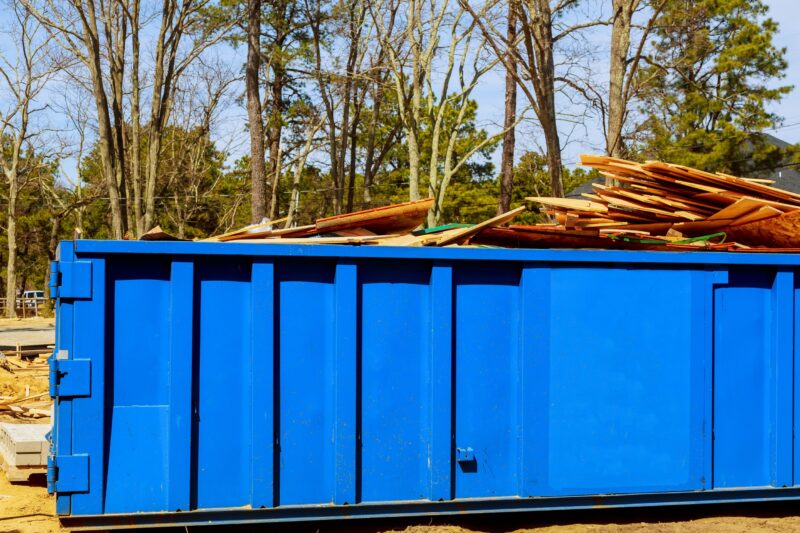Contrary to general waste that you can toss in plastic bags, where garbage companies collect it, house renovation works produce bulky and heavy waste that cannot fit into plastic bags. Since it is your responsibility to oversee the proper disposal of renovation waste, roll-off containers come in handy. This type of containers are usually bigger than the common waste bins placed on property driveways and sidewalks. They have four sets of wheels for use when being hauled away by company trucks, hence the term ‘roll-off’. With many sizes available in the market, knowing the right one for your renovation works is critical to its success.
Type of Waste Produced By a Home Renovation Project

Do you know the size of a dumpster you need?
Before we even ask ourselves what size we should rent for your project, we should first understand what sort of waste house renovation works produce. Among the waste you can expect to come out of the renovation includes concrete, tiles, roof shingles, treated wood, drywall, and asphalt. Evidently, the nature and size of such waste proves our initial view, that a roll-off container is necessary for renovation projects.
Different Waste Containers
Now that we agree on the need to rent a waste container, we should then expound on the different waste container sizes available in the market. This way, you can easily choose the right one for you. They come in different sizes ranging from small, medium, large, and extra-large. This part of the article looks at exactly that.
- Small
Even though the description denotes small, they are not as small as the common waste containers used for general household waste. This category has the 10-yard, 12-yard and 15-yard roll-off containers. These are mainly used for light-duty interior renovation works such as bathroom and kitchen upgrading works.
- Medium
This category has the 20-yard roll-off waste container. This type is ideal for most exterior house renovation works such as roof, walls, driveway and sidewalk upgrading. This is because renovation works such as driveway upgrading produce a little more and heavier waste than the one produced when upgrading a bathroom or a kitchen.
- Large
The 30-yard waste container falls under this category since it is the second largest in the market. It is mainly used for heavy-duty domestic works such as landscaping projects that produce tons of dirt and green waste. It can also be used for waste disposal when tearing down a house. It is also suitable for light commercial projects like office floor renovation works.
- Extra-Large
Measuring 12ft by 8ft by 6ft, 40 yards are the biggest roll-off junk bins in the market. They are best suited for heavy-duty commercial construction work since they can carry approximately 12 tons of junk.
Considerations When Choosing a Waste Bin
For house renovation works, you can go with one of those that fall under the small category. However, several factors have to be considered when making this choice. This part of the article looks at exactly that.
- Type of Waste
This is the main factor that comes into play when choosing the right waste roll-off container. Little and light waste fits perfectly into smaller containers while heavy and bulky waste should be tossed into large and extra-large containers.
- Lot Size
When renting a waste container, you have to factor in the space where to place it. For smaller properties where space is limited, you have to go with small category containers no matter the size and nature of waste.
- Budget Size
The bigger the size of the waste container, the higher the charge rates, and vice versa. Before renting a dumpster, you have to factor in budget size to avoid compromising the future of the project.
- Local Regulations
It is wise to first familiarize yourself with local regulations governing waste management in your area of residence. Things like heaped waste in roll-off containers may get you into trouble with the traffic authorities while the container is being hauled away.
There you have it; all you need to know about roll-off containers, different sizes and rules governing their use. Before tossing anything into the bins, it is always advisable to consult with your container company first. It is good to note that some waste is not allowed into the container and doing so would see you incur hefty fines or face legal battles. To enjoy reduced charge rates, consider comparing the market prices of different companies before you rent one. However, remember, cheaper prices should not be your only concern because you should also factor in delivery and pickup efficiency when renting one.

